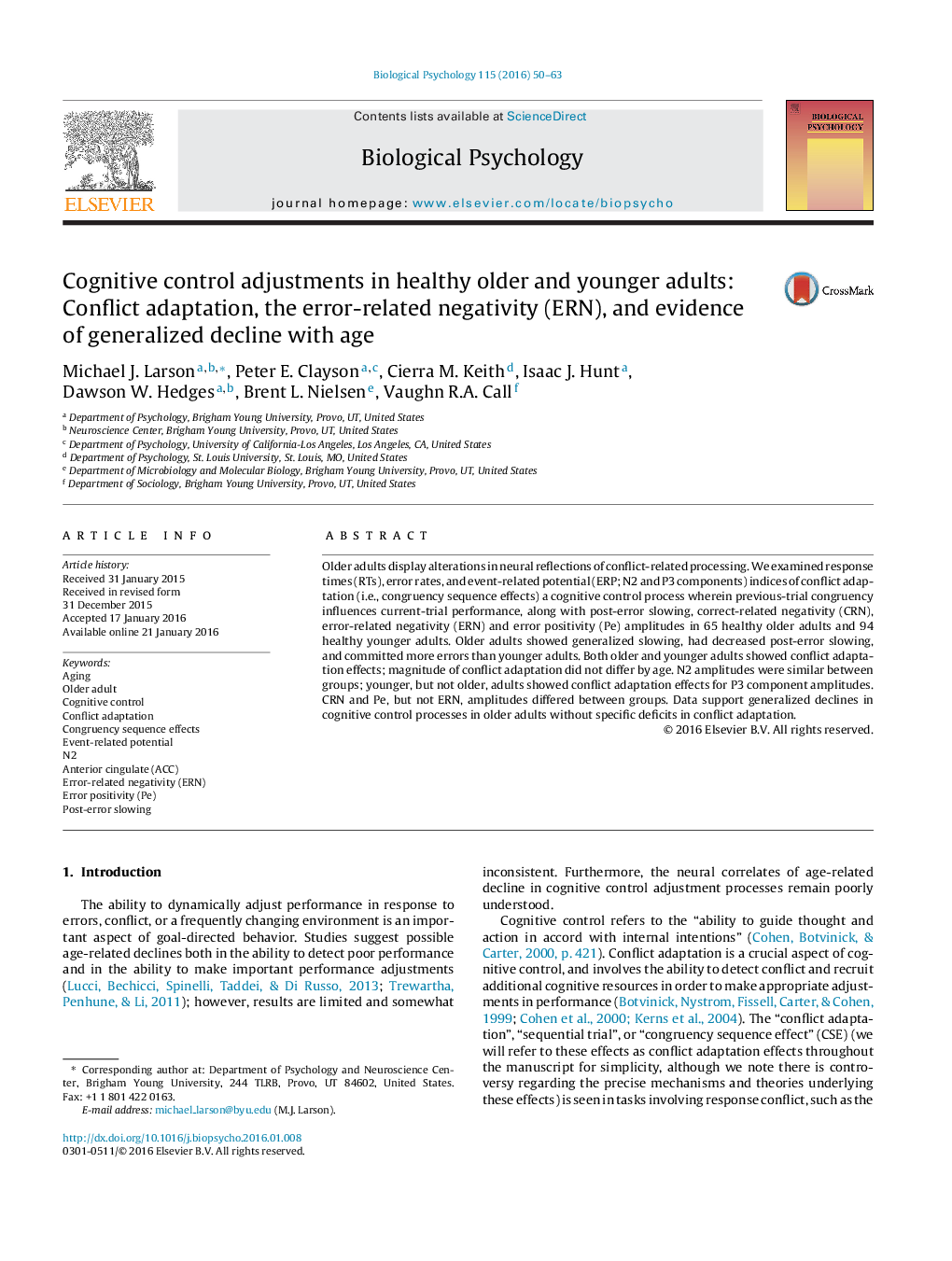| Article ID | Journal | Published Year | Pages | File Type |
|---|---|---|---|---|
| 920726 | Biological Psychology | 2016 | 14 Pages |
•Conflict adaptation represents dynamic adjustments in cognitive control.•65 healthy older adults and 94 healthy younger adults participated.•Groups showed significant conflict adaptation, even with priming controlled.•Magnitude of conflict adaptation did not differ between younger and older.•CRN and Pe, but not ERN amplitudes, differed between younger and older.
Older adults display alterations in neural reflections of conflict-related processing. We examined response times (RTs), error rates, and event-related potential (ERP; N2 and P3 components) indices of conflict adaptation (i.e., congruency sequence effects) a cognitive control process wherein previous-trial congruency influences current-trial performance, along with post-error slowing, correct-related negativity (CRN), error-related negativity (ERN) and error positivity (Pe) amplitudes in 65 healthy older adults and 94 healthy younger adults. Older adults showed generalized slowing, had decreased post-error slowing, and committed more errors than younger adults. Both older and younger adults showed conflict adaptation effects; magnitude of conflict adaptation did not differ by age. N2 amplitudes were similar between groups; younger, but not older, adults showed conflict adaptation effects for P3 component amplitudes. CRN and Pe, but not ERN, amplitudes differed between groups. Data support generalized declines in cognitive control processes in older adults without specific deficits in conflict adaptation.
